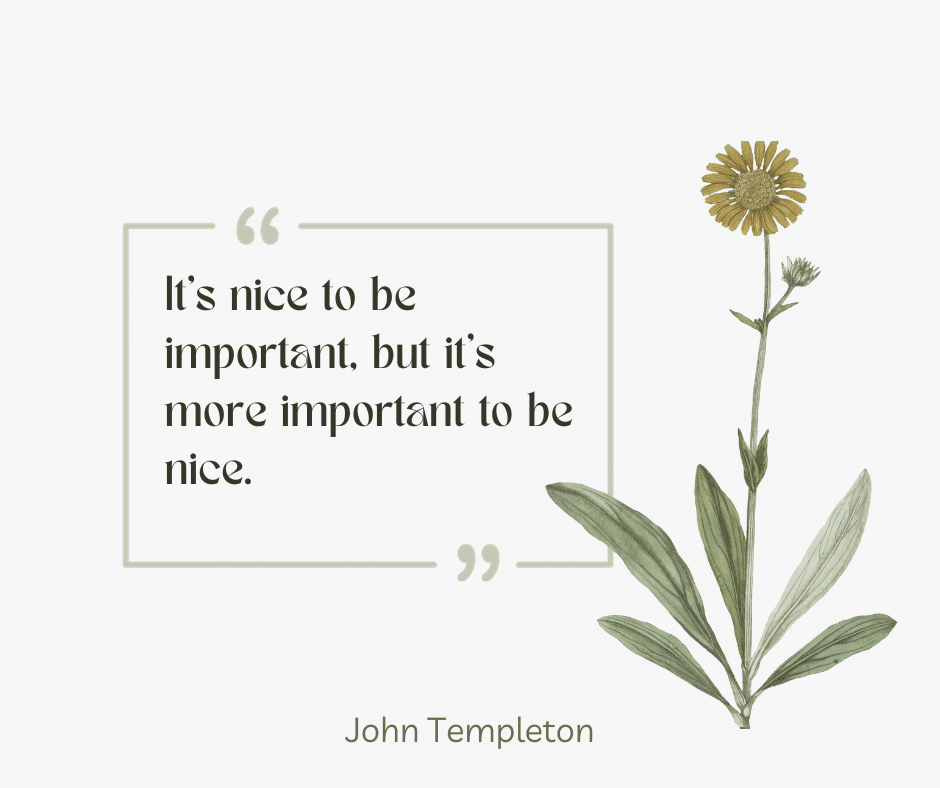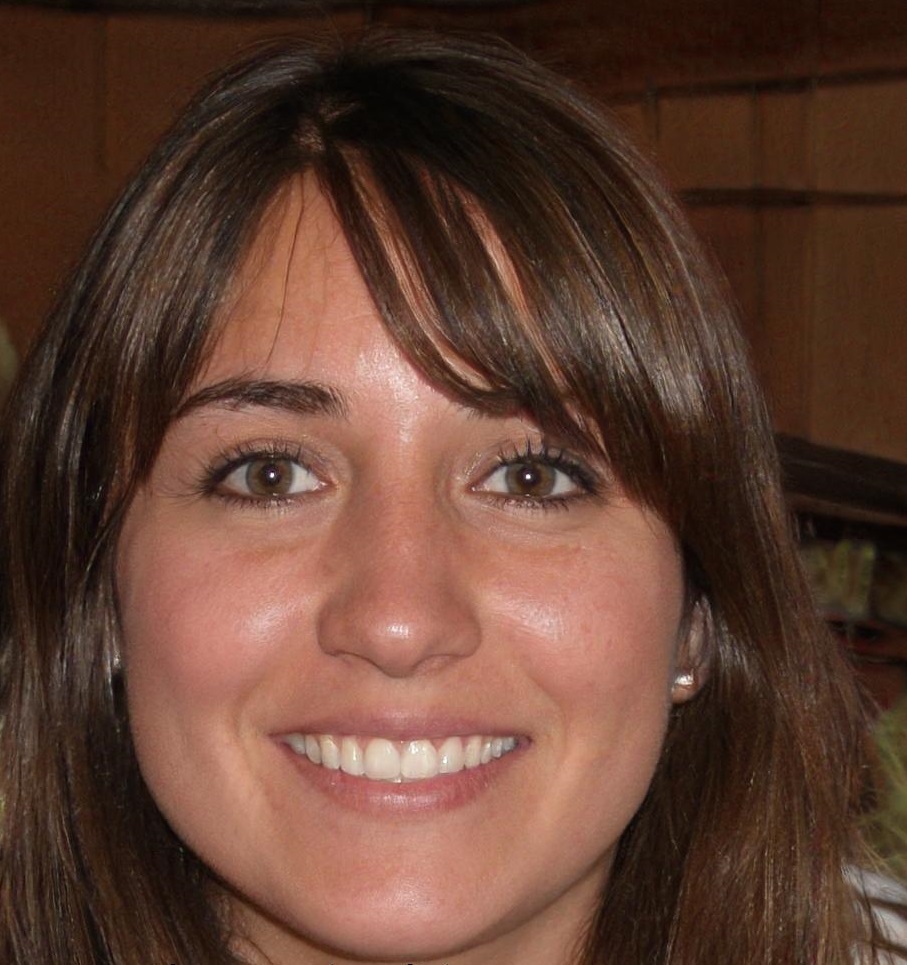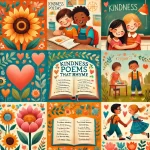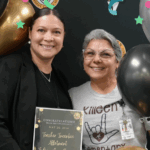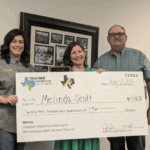Diving into these ‘kindness quotes for elementary students’ is like unlocking a treasure trove of life lessons right from the get-go. Crafted with simplicity and wisdom, these quotes are like your secret weapon to inspire little minds to embrace the kindness vibe. Imagine tiny reminders that show kiddos how those small acts of compassion they do? They create a ripple effect, turning the whole place into a positive and inclusive playground.
So, here’s the deal: sprinkle these quotes into your chats, toss ’em into your daily routines, and bam! You’re not just teaching; you’re shaping a squad that gets the real deal about empathy and generosity. I remember this one time while teaching third grade, threw up a quote on kindness, and the kids started swapping stories about nice things they did. It was like a kindness party in there – pure magic, let me tell you. You’re planting seeds of goodness that’ll grow into a garden of awesome humans. How cool is that for a classroom legacy, right?
Here’re the 10 kindness quotes for elementary students
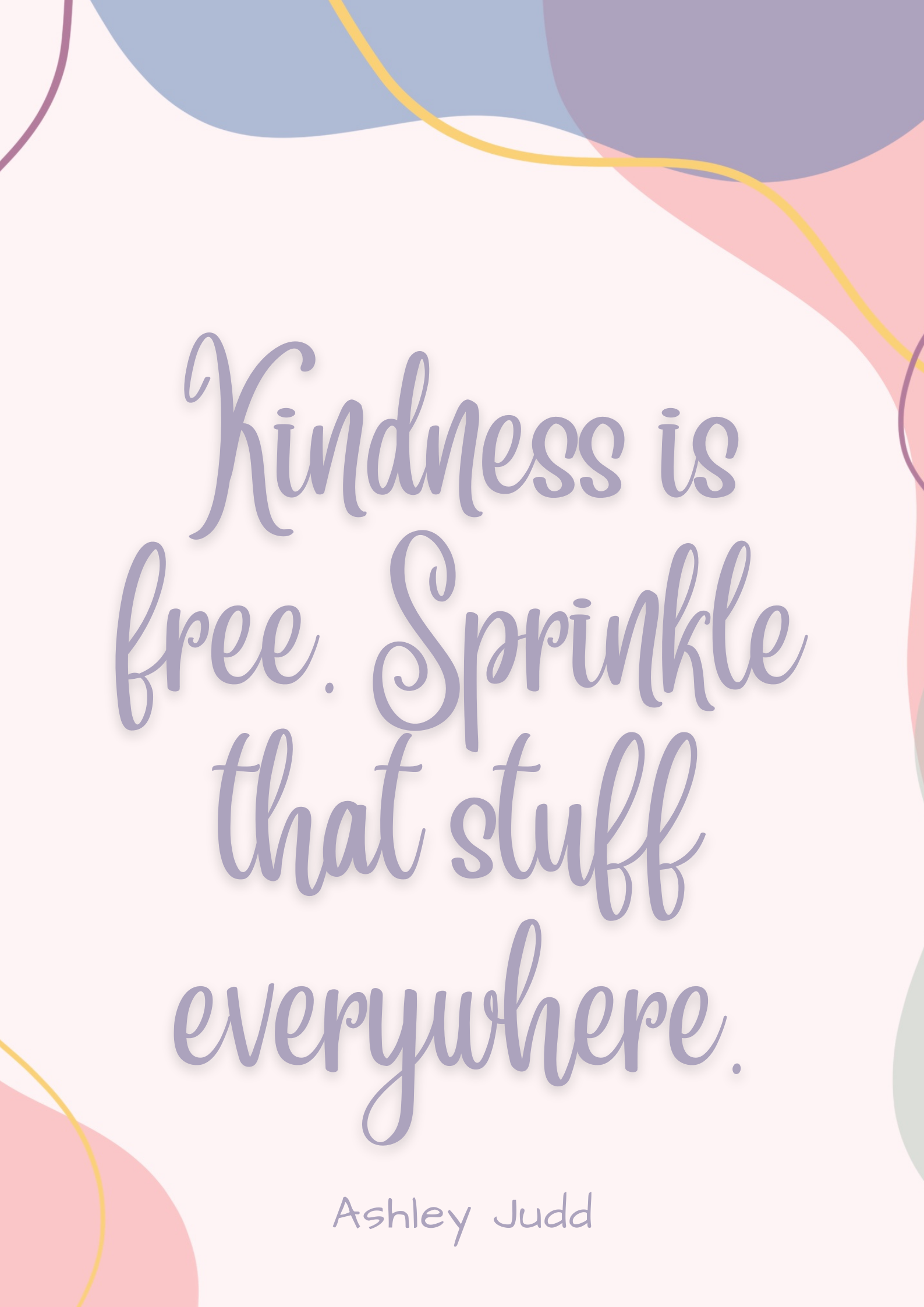
Why this quote is relevant to the students?
This quote is a perfect fit for elementary students because it delivers a straightforward yet powerful message. It’s a playful nudge encouraging kids to understand that kindness doesn’t cost anything and can be freely shared. The whimsical imagery of “sprinkling” kindness everywhere makes the concept tangible and fun, creating a lasting impression that kindness is an accessible and joyful part of their daily lives.
How to use this kindness quote?
In the classroom, use Ashley Judd’s quote as a springboard for interactive discussions. Encourage students to brainstorm and share simple acts of kindness they can “sprinkle” in their school community. Create a visual display where students can add their ideas, turning it into a vibrant reminder of the collective impact of their kindness, fostering a positive and inclusive classroom culture.
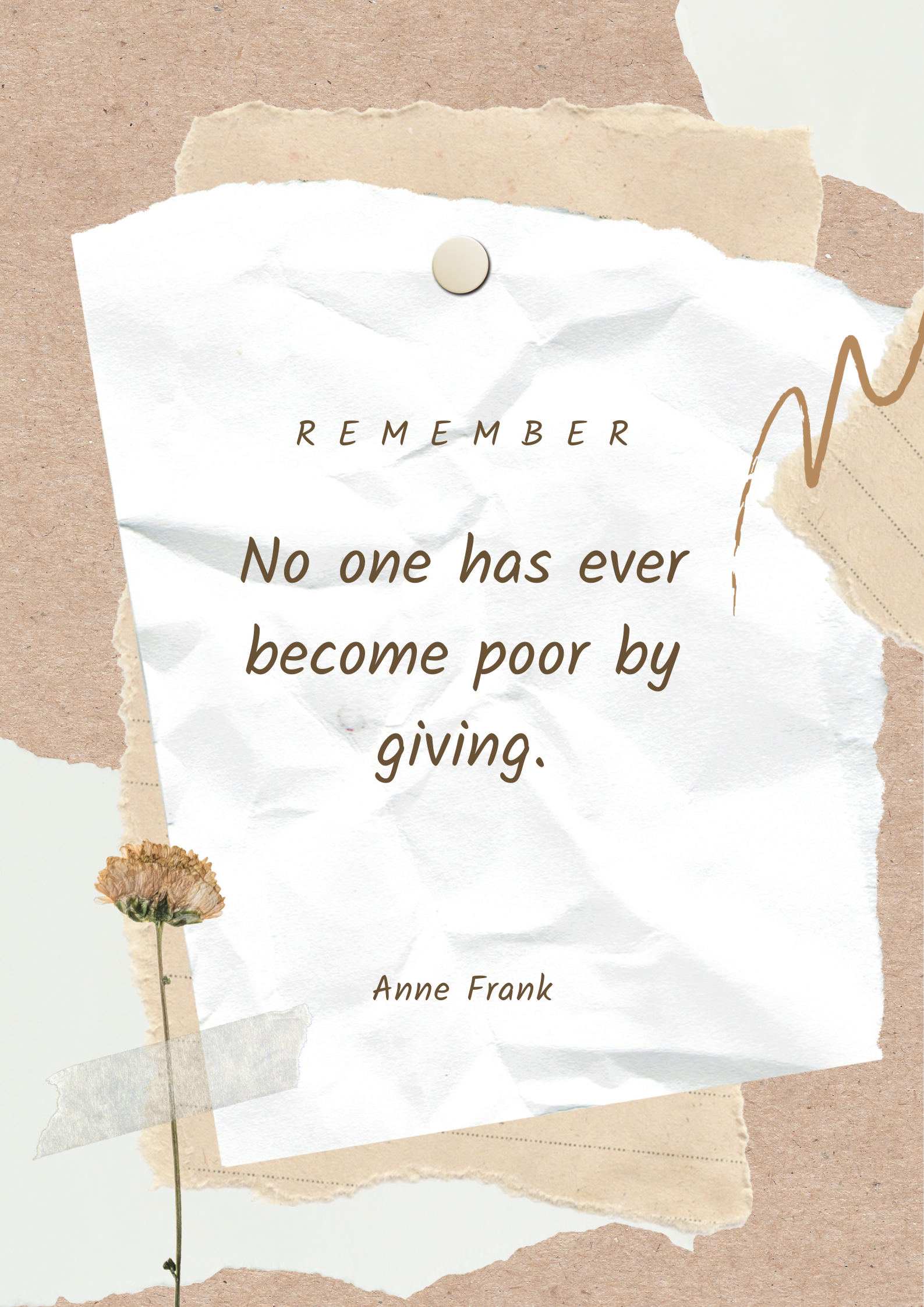
Why this quote is relevant to elementary students?
Anne Frank’s quote is profoundly relevant to elementary students as it introduces the timeless concept of generosity. In simple terms, it teaches children that acts of giving not only benefit others but also contribute to personal richness and fulfillment. It lays the foundation for a positive perspective on sharing and kindness, promoting empathy and a sense of communal responsibility among young minds.
How to use this kindness quote?
Utilize Anne Frank’s quote as a catalyst for classroom discussions on the value of generosity. Encourage students to share instances where giving, whether through sharing, helping, or being kind, has made them feel richer. Integrate it into activities that promote teamwork and collaborative projects, fostering a classroom environment where the joy of giving becomes a shared experience.
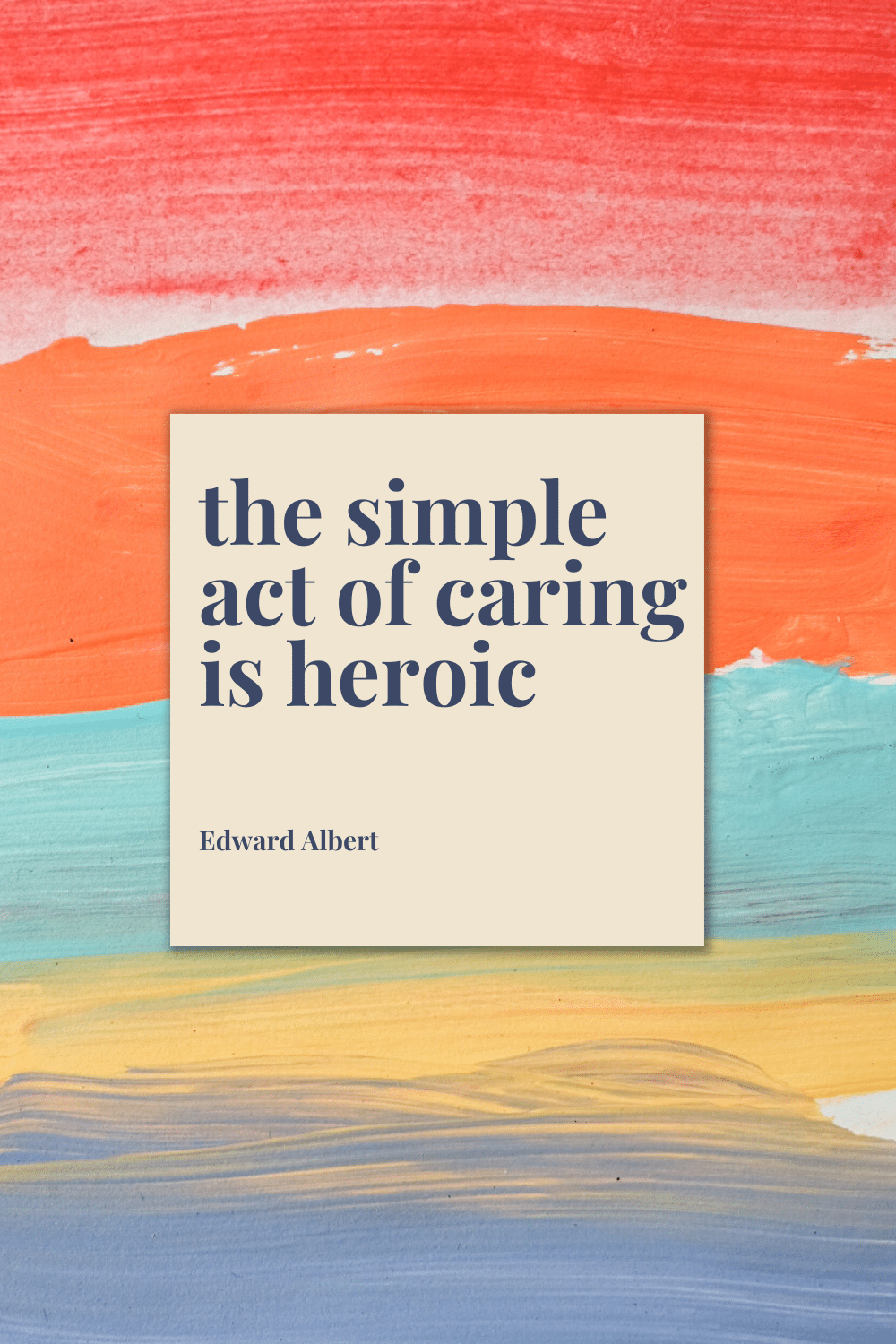
Why this quote is relevant to elementary students?
Edward Albert’s quote resonates with elementary students by casting everyday acts of caring as heroic endeavors. It simplifies the concept of heroism, making it accessible and relatable to young minds. By celebrating simple acts of kindness as heroic, the quote empowers children to see the potential impact of their compassion, fostering a sense of agency and positive identity within the classroom community.
How to use this kindness quote?
In the classroom, leverage Edward Albert’s quote to spark conversations about the power of caring. Encourage students to share instances where they felt like heroes by helping others or showing kindness. Connect the quote to literature or real-life examples, emphasizing that heroism isn’t just about grand gestures but is often found in the small, caring actions that make a big difference in the lives of others.
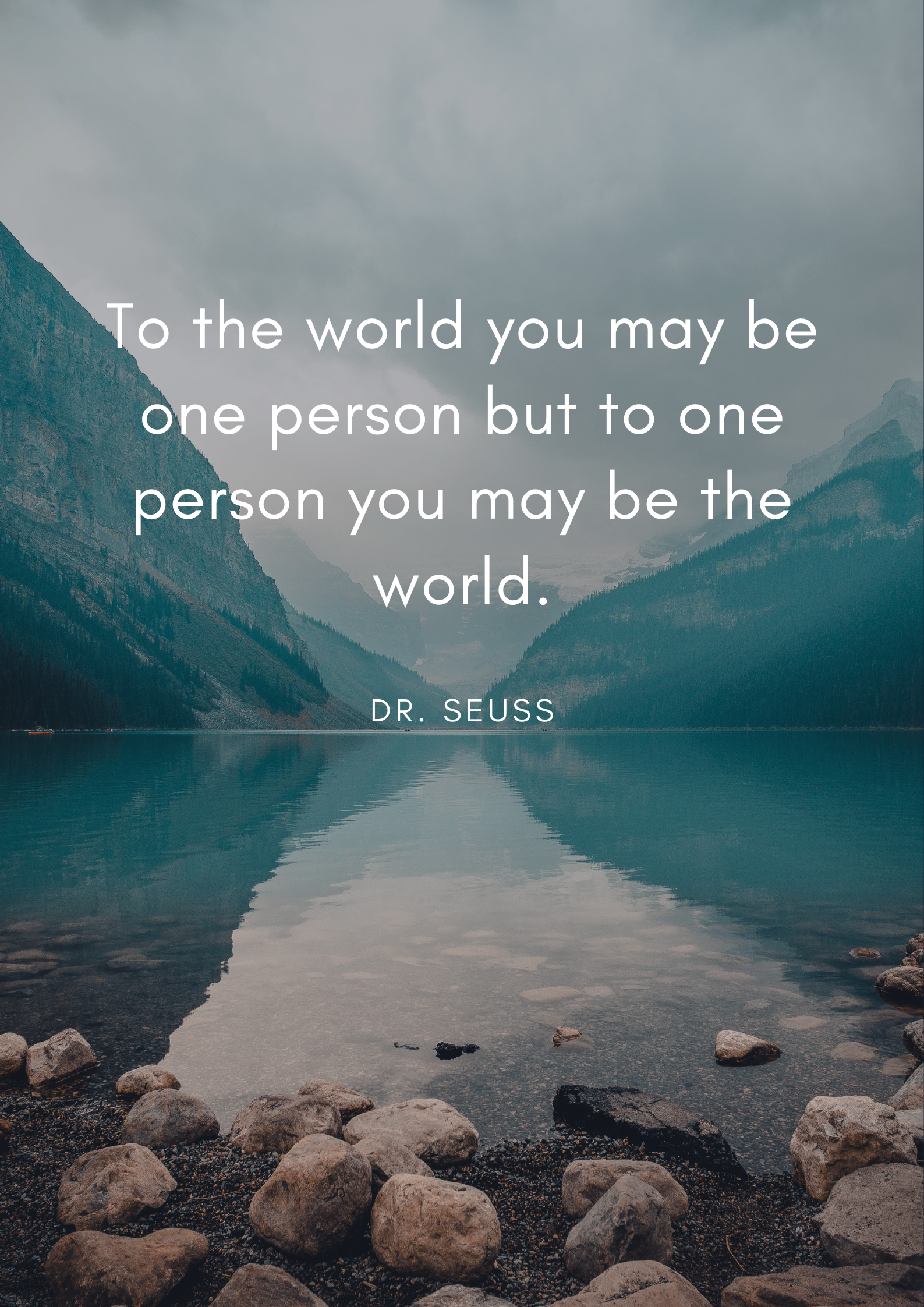
Why this quote is relevant to the students?
Dr. Seuss’s quote is particularly relevant to elementary students as it encapsulates the profound impact of individual connections. It imparts a sense of importance to each child, emphasizing that even small acts of kindness can create a significant and positive influence on someone else’s world. This quote encourages children to recognize the value of their relationships and the potential they have to make a difference in someone’s life, fostering empathy and a sense of interconnectedness in the classroom.
How to use this kindness quote?
In the classroom, employ Dr. Seuss’s quote as a catalyst for activities that promote understanding and empathy. Encourage students to reflect on the impact they can have on their peers, fostering a sense of community. Implement projects or discussions that highlight the unique qualities and contributions of each student, reinforcing the idea that every individual is significant and plays a crucial role in creating a supportive and inclusive classroom environment.
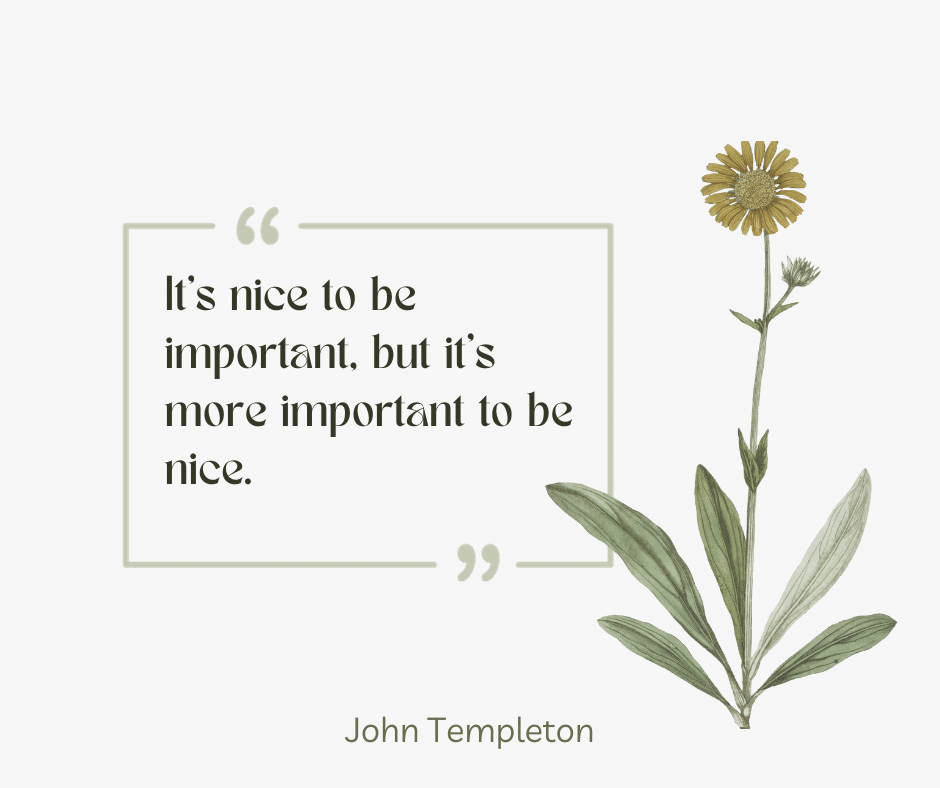
Why this quote is relevant to elementary students?
John Templeton’s quote is highly relevant to elementary students as it imparts a fundamental lesson in values and priorities. It simplifies the concept of importance, emphasizing that kindness holds greater significance than social status or recognition. This quote encourages children to prioritize cultivating kindness in their interactions, fostering a positive and inclusive atmosphere within the classroom.
How to use this kindness quote?
In the classroom, utilize John Templeton’s quote as a guiding principle for discussions on character and interpersonal relationships. Encourage students to share examples of times when being kind was more meaningful than seeking attention. Implement activities that highlight the value of positive behavior and reinforce the idea that genuine kindness creates a more harmonious and fulfilling classroom environment for everyone.
Do things for people not because of who they are or what they do in return, but because of who you are.
Harold S. Kushner
Why this quote is relevant to the students?
Harold S. Kushner’s quote holds relevance for elementary students as it imparts a profound lesson in genuine kindness and selflessness. It encourages children to embrace the idea of doing good deeds without expecting anything in return, emphasizing the intrinsic value of compassion and generosity. This quote promotes a positive and inclusive classroom culture by instilling the notion that acts of kindness define one’s character and contribute to building a caring community.
How to use this kindness quote?
In the classroom, leverage Harold S. Kushner’s quote to initiate discussions about the true essence of kindness. Encourage students to share personal experiences where they did something for others solely based on their own values and empathy. Integrate the quote into activities that emphasize the joy of giving without expecting reciprocity, fostering a classroom environment where genuine kindness becomes a natural and celebrated aspect of each student’s character.
Kind hearts are the gardens, kind thoughts are the roots, kind words are the flowers, kind deeds are the fruits.
Henry Wadsworth Longfellow
Why this quote is relevant to elementary students?
Henry Wadsworth Longfellow’s quote is relevant to elementary students as it beautifully weaves together the imagery of a garden to convey the growth of kindness. It simplifies the concept by associating kind thoughts, words, and deeds with the various elements of a garden, making it a vivid and memorable lesson for young minds. This quote encourages children to understand that cultivating kindness is a holistic process that begins with positive thoughts and blossoms into meaningful actions, fostering a sense of responsibility for their words and behaviors in the classroom and beyond.
How to use this kindness quote?
In the classroom, Henry Wadsworth Longfellow’s quote can be a springboard for creative and interactive activities. Have students draw or create visual representations of their “kindness gardens,” depicting kind thoughts as roots, kind words as flowers, and kind deeds as fruits. This hands-on approach not only reinforces the quote’s metaphorical concept but also allows students to reflect on and share their personal contributions to creating a positive and nurturing classroom environment.
A single act of kindness throws a pebble into the pond, and its ripple effect can change the world.
Desmond Tutu
Why this quote is relevant to the students?
Desmond Tutu’s quote is highly relevant to elementary students as it introduces the concept of the ripple effect of kindness in a simple and impactful way. It illustrates that even the smallest act of kindness can have far-reaching positive consequences, empowering young minds to recognize the potential impact of their actions. This quote encourages children to see themselves as catalysts for positive change, fostering a sense of agency and responsibility within the classroom and beyond.
How to use this kindness quote?
In the classroom, Desmond Tutu’s quote can spark discussions about the power of individual actions. Encourage students to share instances where a small act of kindness created a positive ripple effect. Connect the quote to collaborative projects or initiatives that demonstrate how collective kindness can make a meaningful impact on their school community, instilling a sense of responsibility for creating positive change in the world around them.
Keep shining beautiful one. Let your inner light shine through and warm those around you.
Stephanie Lahart
Why this quote is relevant to the students?
Stephanie Lahart’s quote is relevant to elementary students as it delivers a positive and uplifting message about embracing one’s unique qualities. It encourages children to recognize and appreciate their individual strengths, fostering self-confidence and a positive self-image. This quote promotes a classroom environment that values and celebrates the diverse qualities of each student, inspiring them to share their “inner light” with others and contribute to a warm and supportive community.
How to use this kindness quote?
In the classroom, Stephanie Lahart’s quote can serve as a daily affirmation or mantra. Create a “Shine Bright” bulletin board where students can showcase their talents, achievements, or positive contributions. Discuss the quote in class, encouraging students to reflect on what makes them unique and how their “inner light” can positively influence their peers, fostering a culture of self-expression, mutual appreciation, and support.
Have courage and be kind. Where there is kindness there is goodness, and where there is goodness there is magic.
Disney’s Cinderella
Why this quote is relevant to the students?
Disney’s Cinderella quote is relevant to elementary students as it encapsulates the timeless and enchanting message of courage and kindness. It introduces the idea that acts of kindness are not only virtuous but also have a magical quality, resonating well with the imagination of young minds. This quote encourages children to embody kindness and bravery, fostering a positive and imaginative classroom environment where they can embrace their own goodness and contribute to a magical sense of community.
How to use this kindness quote?
In the classroom, use Disney’s Cinderella quote as a theme for character education. Create a “Courage and Kindness” chart where students can share examples of how they demonstrated these qualities. Tie the quote into storytelling sessions or creative writing exercises, encouraging students to explore the magical outcomes that kindness can bring to their own lives and the lives of those around them, fostering a classroom culture built on compassion and courage.
Conclusion
As we’re winding down, let me tell you, these kindness quotes for elementary students are like the secret sauce of shaping awesome kiddos. They’re not just words; they’re like little sparks of good vibes that can totally rock a classroom. So, you know, throw these quotes into your teacher toolkit. Trust me, you’ll be cultivating more than just smart minds – you’ll be growing a bunch of kind-hearted, cool little humans. Let the kindness vibes flow, and watch the magic happen in your classroom!
Further Reading
If you’re interested to go through some academic stuff on kindness, this research article titled ‘Comparing the effects of performing and recalling acts of kindness‘ conducted a study with a 2 × 2 design in which participants were randomly assigned either to perform prosocial behaviors, recall prosocial behaviors, both perform and recall prosocial behaviors, or do neither (control). And the results suggest that happiness seekers and well-being interventionists consider recalling acts of kindness as a cost-effective practice to raise well-being.
